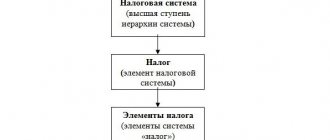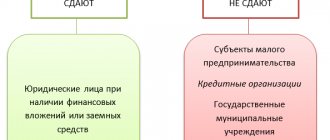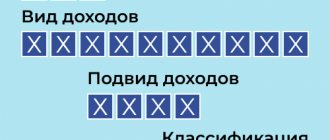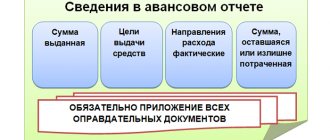Are professional standards mandatory?
Professional standards (to the extent determined by law) are mandatory for all legal entities (including budgetary ones) and individual entrepreneurs:
1. If, in accordance with the Labor Code of the Russian Federation, other federal laws, the performance of work in certain positions, professions, specialties is associated with the provision of compensation and benefits or the presence of restrictions, then the names of these positions, professions or specialties and the qualification requirements for them must correspond to the names and requirements specified in the qualification reference books (ECS and ETKS) or professional standards (part 2 of article 57 of the Labor Code of the Russian Federation, clause 6 of the letter of the Ministry of Labor dated 04.04.2016 No. 14-0/10/B-2253 (hereinafter referred to as the Letter)) .
2. If the Labor Code of the Russian Federation, other federal laws, and other regulatory legal acts of the Russian Federation establish requirements for the qualifications necessary for an employee to perform a certain labor function, professional standards in terms of these requirements are mandatory for application by employers (Part 1 of Article 195.3 of the Labor Code of the Russian Federation, p. 6 Letters). For example, the requirements for the qualifications of the chief accountant in certain organizations are established by the Law “On Accounting” dated December 6, 2011 No. 402-FZ (clause 4 of Article 7), accordingly, these requirements in the professional standard of an accountant are mandatory for use.
3. In all other cases, these requirements are advisory in nature (clause 6 of the Letter). According to Part 2 of Art. 195.3 of the Labor Code of the Russian Federation, qualification characteristics that are contained in professional standards and the mandatory application of which is not established by federal laws or regulations of the Russian Federation, are used by employers as the basis for determining the requirements for the qualifications of employees, taking into account the characteristics of the labor functions performed by employees, determined by the technologies used and accepted organization of production and labor.
What is meant by regulatory legal acts of the Russian Federation in Art. 195.3 Labor Code of the Russian Federation?
Does this mean that since professional standards are approved by order of the Ministry of Labor of the Russian Federation, then any professional standard in terms of qualifications is mandatory for application?
For the purposes of applying professional standards, under other regulatory legal acts of the Russian Federation, specified in Part 1 of Art. 195.3 of the Labor Code of the Russian Federation, refers to regulatory decrees of the President of the Russian Federation, decrees and orders of the Government of the Russian Federation, regulatory legal acts of federal executive authorities, regulatory legal acts of the Bank of Russia, other bodies and organizations with exclusive regulatory rights, which establish special requirements for employees performing certain other job responsibilities (for example, orders of the Ministry of Transport of Russia, Instructions of the Central Bank of Russia, Rosatom, etc.) (clause 8 of the Letter, clause 2 of the draft clarifications of the Ministry of Labor of the Russian Federation, 2021).
The orders of the Ministry of Labor of the Russian Federation, which approve the professional standards themselves, although they are normative legal acts, but within the meaning of Art. 195.3 of the Labor Code of the Russian Federation do not establish mandatory requirements for the qualifications of workers. Otherwise, all professional standards would be mandatory and the whole point of introducing Part 2 of Art. 195.3 of the Labor Code of the Russian Federation would simply be lost.
Sanctions according to professional standards
Sanctions are possible if professional standards are not applied or applied incorrectly in situations where their application is required. The employer may be issued an order to eliminate identified violations of labor legislation. In addition, the employer may be fined (Article 5.27 of the Administrative Code):
- official - in the amount from 1000 to 5000 rubles;
- individual entrepreneur - in the amount from 1000 to 5000 rubles;
- legal entity - in the amount of 30,000 to 50,000 rubles.
If the mandatory application of professional standards is not established, then the requirements of the inspection bodies regarding their application are unlawful.
Will qualification reference books (ETKS and EKS) be cancelled?
In the future, it is planned to replace the ETKS and EKS with professional standards, as well as individual industry requirements for the qualifications of workers, approved by legislative and other regulatory legal acts that already exist (for example, in the field of transport, etc.). But such a replacement, according to the Russian Ministry of Labor, will take place over a fairly long period (clause 4 of the Letter).
If the qualification directory and professional standard for similar positions (professions, specialties) contain different qualification requirements, then what document should the employer use?
The employer independently determines which regulatory legal act he uses, with the exception of cases provided for by federal laws and other regulatory legal acts of the Russian Federation (clause 5 of the Letter).
Where to find the answer to your question
Answers to the most frequently asked questions regarding the application of professional standards are posted on the official website of the Russian Ministry of Labor at: https://www.rosmintrud.ru/docs/mintrud/paуment/128.
In addition, since 2013, the Russian Ministry of Labor regularly conducts information and consulting seminars on the application of professional standards for organizations based on the Federal State Budgetary Institution “Research Institute of Labor and Social Insurance” (SRI TTS). Information about free seminars of the Research Institute of TCC, including on the application of professional standards, is posted at the email address: https://vet-bc.ru/. Methodological assistance on the application of professional standards is provided by the Research Institute of Labor and Social Insurance at the email address [email protected]
Job title in accordance with the professional standard
In its unpublished recommendations, the Ministry of Labor of the Russian Federation recommends naming a position in accordance with one generalized labor function (within one professional standard), taking into account the specifics of work for a particular employer and Part 2 of Art. 57 of the Labor Code of the Russian Federation (“preferential” positions, restrictions).
If an employee performs work in different positions (professions), i.e. different generalized labor functions, then the name of the position (profession, specialty) is established according to the work performed at a higher level of qualification.
What must be included in the employee’s responsibilities if the employer decides to change the job description in accordance with the professional standard?
In the employee’s job responsibilities, the employer may indicate labor functions and (or) labor actions contained in either one or several professional standards (clause 5 of the draft clarifications of the Ministry of Labor of the Russian Federation, 2021).
Previously, the Ministry of Labor of the Russian Federation recommended indicating in the employee’s duties specific labor actions from the professional standard, related to a specific labor function from the corresponding generalized labor function, which the employee must perform within the framework of his position, taking into account the tasks and functions of a specific structural unit. The list of labor actions for the labor function of a specific professional standard is the minimum necessary and can be supplemented with labor actions from another generalized labor function of the labor function of the same professional standard, depending on the operating conditions of the employer (clause 9 of the draft recommendations of the Ministry of Labor of the Russian Federation 2014).
Now, he has specified that not only specific labor actions can be added to an employee’s job description, but also the labor functions themselves, i.e. more general responsibilities.
In addition to the cases provided for by federal laws, taking into account the Labor Code of the Russian Federation and the specifics of the activity, the employer can also:
- distribute labor actions provided for by one professional standard among employees occupying different positions, having different professions or specialties, taking into account the technologies used and labor organization (clause 5 of the draft clarifications of the Ministry of Labor of the Russian Federation, 2021);
- expand the list of labor actions for individual positions (professions, specialties) in comparison with the list from the professional standard. What’s interesting is that if the recommendations of 2014 did not specify whether it is possible to invent new labor actions on one’s own, then in the project that has not seen the light of day on the peculiarities of using PS for the public sector, it was already noted that labor actions can be expanded only through labor functions and labor actions from other generalized t/f of the same professional standard or from related PS.
Dismissal for non-compliance with professional standards
The noble goal of introducing professional standards was not only to improve the quality of education of future workers, but also to motivate employers to train their employees so that they meet the qualification requirements of professional standards. For us, as usual, it turned out the other way around. In professional standards, employers saw an excellent opportunity to fire any “undesirable” employee , let alone send him for expensive training. And since judicial practice is still so small, it is not even possible today to create a uniform approach to the application of professional standards.
As the Ministry of Labor of the Russian Federation has repeatedly explained, the entry into force of professional standards is not a basis for the dismissal of workers (clause 10 of the letter of the Ministry of Labor dated April 4, 2016). There is no such basis for dismissal of workers as non-compliance with the requirements of professional standards in the Labor Code of the Russian Federation.
But he also repeatedly reminded employers about the possibility of dismissing an employee for inadequacy of his position or work performed due to insufficient qualifications, confirmed by certification results . What if there is no compulsory education that meets the professional standard? Is it possible to dismiss an employee based on the results of certification only on this basis? What if the law does not require a diploma, but the employer has undertaken to comply with the requirements of the professional standard? And if this is a budget, where, as you know, laws are applied with an eye on higher authorities? As expected, the ministry does not give a concrete answer to these questions.
In its letter dated April 4, 2016, in paragraph 10, the Ministry of Labor of the Russian Federation limited itself to a reminder of the employer’s right to conduct certification of employees. He also equated the text from the qualification reference book to professional standards, noting that, when applying qualification reference books and professional standards, persons who do not have special training or work experience established in the section “Qualification Requirements”, but have sufficient practical experience and perform efficiently and in the full extent of the official duties assigned to them, on the recommendation of the certification commission, they are appointed to the appropriate positions in the same way as persons with special training and work experience. Will this stop an employer from firing workers? Moreover, this paragraph is a right, not an obligation for employers.
In principle, the Labor Code of the Russian Federation contains the following grounds for the dismissal of workers, which can be subsumed under “the employee’s failure to meet the professional standard”:
- dismissal of an employee due to inadequacy of his position or work performed due to insufficient qualifications confirmed by certification results (clause 3, part 1, article 81 of the Labor Code of the Russian Federation);
- dismissal of an employee due to his refusal to continue working due to a change in the terms of the employment contract determined by the parties (clause 7, part 1, article 77 of the Labor Code of the Russian Federation, article 74 of the Labor Code of the Russian Federation);
- dismissal of an employee due to violation of the rules for concluding an employment contract established by the Labor Code of the Russian Federation or other federal law, if this violation excludes the possibility of continuing work (clause 11, part 1, article 77 of the Labor Code of the Russian Federation), for example, the absence of an appropriate document on education and (or ) on qualifications, if the performance of work requires special knowledge in accordance with federal law or other regulatory legal acts (Article 84 of the Labor Code of the Russian Federation).
Dismissal of an employee due to inadequacy of his position or work performed due to insufficient qualifications confirmed by certification results (clause 3, part 1, article 81 of the Labor Code of the Russian Federation)
The procedure for certification is established by labor legislation and other regulatory legal acts containing labor law norms, local regulations adopted taking into account the opinion of the representative body of workers (Article 81 of the Labor Code of the Russian Federation).
There is currently no regulatory legal act that would define the general procedure for certification, the category of workers who are not subject to certification. Certain categories of employees (teachers, state or municipal employees, etc.) have their own rules for certification.
Commercial employers should keep in mind that in the event of a dispute, the court may use the Regulations on the procedure for certification of management, engineering and technical workers and other specialists of enterprises and organizations in industry, construction, agriculture, transport and communications, approved by Resolution of the State Committee for Science and Technology of the USSR N 470, State Committee for Labor of the USSR N 267 dated 05.10.1973. This is true, by the way.
For an illustrative example, consider the decision of the Nakhodka City Court of the Primorsky Territory dated March 31, 2016 (case No. 2-1233).
The employer, in connection with the adoption of the order of the Ministry of Labor and Social Development of the Russian Federation dated July 24, 2015 No. 514n “On approval of the professional standard “teacher-psychologist (psychologist in the field of education)”, which established mandatory requirements for the presence of higher education for the position of teacher-psychologist specialized areas, held a meeting of the expert commission to check documents to determine the employee’s suitability for the position held.
Based on the results of the examination of the documents by the expert commission, it was decided that the employee did not meet the requirements of the professional standard, and therefore the latter was dismissed under clause 3 of part 1 of Art. 81 Labor Code of the Russian Federation.
The court recognized that the employer still had grounds for dismissing the employee due to his lack of an appropriate document on education, since performing work as a “teacher-psychologist” requires special knowledge in accordance with the Law “On Education in the Russian Federation” and qualification directory.
However, the wording of dismissal should be changed from dismissal under paragraph 3 of part 1 of Article 81 of the Labor Code of the Russian Federation due to the employee’s inadequacy for the position held or work performed due to insufficient qualifications confirmed by the results of certification, to dismissal under paragraph 4 of part 1 of Article 84 of the Labor Code of the Russian Federation in connection with lack of an appropriate document on education and (or) qualifications, if the performance of work requires special knowledge in accordance with federal law or other regulatory legal acts.
The court also took into account that the professional standard “Teacher-psychologist (psychologist in the field of education)” is used by employers when forming personnel policies and in personnel management, when organizing training and certification of employees, concluding employment contracts, developing job descriptions and establishing remuneration systems from 1 January 2021, and therefore this regulatory document could not be applied to the legal relations of the parties.
Let's return to the interview with the deputy head of the Federal State Information Technology Institute I.I. Shklovets (“Main Book”, No. 14, 2021).
And if, as a result of certification, it is confirmed that the employee does not meet the professional standard, then can he be fired?
If, as a result of certification, the employee’s insufficient qualifications established by the professional standard for his position were confirmed, the employer has the right to dismiss this employee.
However, the goal of introducing professional standards is not to get rid of the employee, but to meet the qualification requirements. If an employee does not fully meet professional standards, it is better to send him for additional training. And only when the employee himself does not want to improve his skills and work better, the employer should take such extreme measures as dismissal.
Is it possible to check an employee’s compliance with professional standards without the participation of the employee, based on formal criteria, based on the availability of documents?
No, this type of verification is not provided for by law. I believe that the amendments being prepared also do not allow for this possibility.
I specifically emphasized two sentences from the interview. Does anyone else really believe that employers will send people to training at their own expense? Especially if compulsory training is not provided for either by labor legislation, or by a local regulatory act of the employer, or by the employee’s employment contract. Some employers may find it cheaper and faster to fire an employee than to send him to appropriate training. Even the entry into force from January 2021 of two federal laws dated July 3, 2016 related to professional standards, namely No. 238-FZ “On independent assessment of qualifications” and No. 239-FZ “On amendments to the Labor Code of the Russian Federation” does not obliges all employers to send employees for training or qualification assessment. Although, in order to encourage employers to conduct an assessment of the qualifications of their employees, in the future, it is planned to introduce appropriate changes to the Tax Code of the Russian Federation. Some have already been introduced by Federal Law dated July 3, 2016 No. 251-FZ. As they say, “we’ll wait and see.”
Dismissal of an employee due to his refusal to continue working due to a change in the terms of the employment contract determined by the parties (Clause 7, Part 1, Article 77 of the Labor Code of the Russian Federation, Article 74 of the Labor Code of the Russian Federation)
Quite an interesting appeal ruling of the Rostov Regional Court dated May 26, 2016 (case No. 33-8683), in which the court equated the introduction of professional standards in the public sector of a particular region with a change in the organizational working conditions in the organization, and an increase in the text of the employee’s job responsibilities, within responsibilities of the professional standard, to specify the responsibilities, without changing the employee’s labor function.
The employer explained the change in the employee’s job description, and accordingly the application of Art. 74 of the Labor Code of the Russian Federation as follows:
In connection with the introduction of professional standards into the practice of social service institutions in 2015 in accordance with the Decree of the Government of the Rostov Region dated February 28, 2013. No. 107 “On approval of the action plan (“road map”) “Improving the efficiency and quality of services in the field of social services for the population of the Rostov region (2013-2018)” activities for the preparation and implementation of professional standards include the registration and approval of job descriptions of employees taking into account professional standards.
The panel of appeals agreed with him:
The court found that in ... there was a change in organizational working conditions, giving the employer grounds for dismissing the employee if he disagrees with the continuation of work under the new working conditions. The employer did not have the opportunity to keep the working conditions as they were, since there was a need to change the job descriptions of employees in connection with the introduction of professional standards into the practice of social service institutions in 2015, which entailed the need to specify the plaintiff’s job responsibilities and, accordingly, to revise the terms of the employment contract with employee (clause 1 of section 1 of the employment contract on determining the job responsibilities of a social work specialist in accordance with the job description).
The change in these working conditions was caused by a change in organizational working conditions in connection with the introduction by order of the Ministry of Labor and Social Protection of the Russian Federation dated October 22, 2013. No. 571n of the professional standard “Social work specialist” and the need to adjust some of the employee’s duties without changing the labor function, detailing his labor actions and the necessary knowledge and skills to perform the labor function, which does not contradict the provisions of Art. Art. 15, 57 Labor Code of the Russian Federation.
The arguments of the complaint about the change in the plaintiff’s labor function, established by the job description when she was hired, are unfounded and are refuted by the case materials. A comparative analysis of the job responsibilities of a social work specialist shows that the employer made an adjustment to the employee’s existing responsibilities with clarification of labor actions when performing these duties, which confirms that the employee’s labor function in the sense of the provisions of Art. Art. 57, 60, 72 of the Labor Code of the Russian Federation remained unchanged. Any duties that could entail additional requirements for the plaintiff’s specialty or qualifications were not included in the job description, but new conditions for performing the work assigned to the employee were introduced.
Apparently, everything is heading towards the fact that public sector employers will again massively apply this dismissal clause, due to the entry into force of professional standards, as is the case with the introduction of an effective contract. It should be noted that the courts, both then and today, also cannot come to a consensus on whether it is always possible to apply Art. 74 Labor Code of the Russian Federation? It seems that this article has never been a kind of lifesaver for all occasions, but as we see, if you wish, you can put anything under it.








